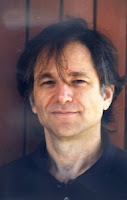Ever since the movie "2001- A SPACE ODYSSEY"- made in 1968-people have wondered about the advantages and disadvantages of superior computer power.
I would like to introduce this topic by using a quote from Ray Kurzwell -a noted futurologist.
“An analysis of the history of technology shows that technological change is exponential, contrary to the common-sense “intuitive linear” view. So we won’t experience 100 years of progress in the 21st century — it will be more like 20,000 years of progress (at today’s rate). The “returns,” such as chip speed and cost-effectiveness, also increase exponentially. There’s even exponential growth in the rate of exponential growth.”
A second quote is also helpful in understanding the dimensions of this topic. It is a quote from Bertrand Russell-a name many of you should be familiar with:
"Change is scientific, progress is ethical; change is indubitable, whereas progress is a matter of controversy."
I hope many of you have some thoughts to share.







 Leonard Max Adleman(born December 31, 1945) is a
Leonard Max Adleman(born December 31, 1945) is a 
.jpg/240px-Frankenstein%27s_monster_(Boris_Karloff).jpg)









